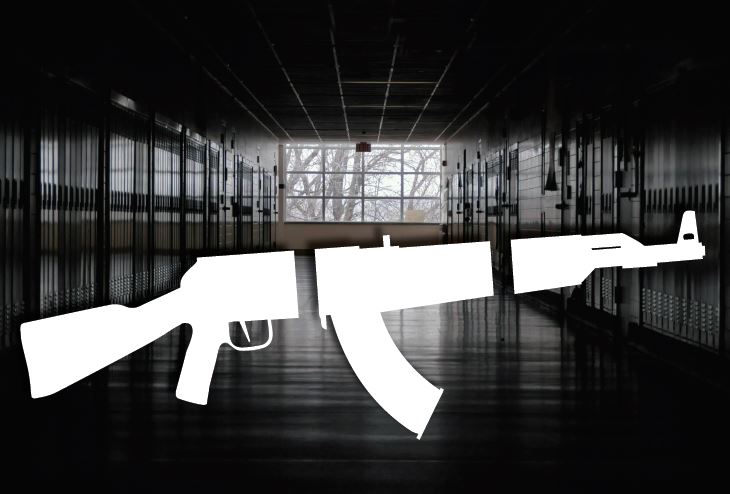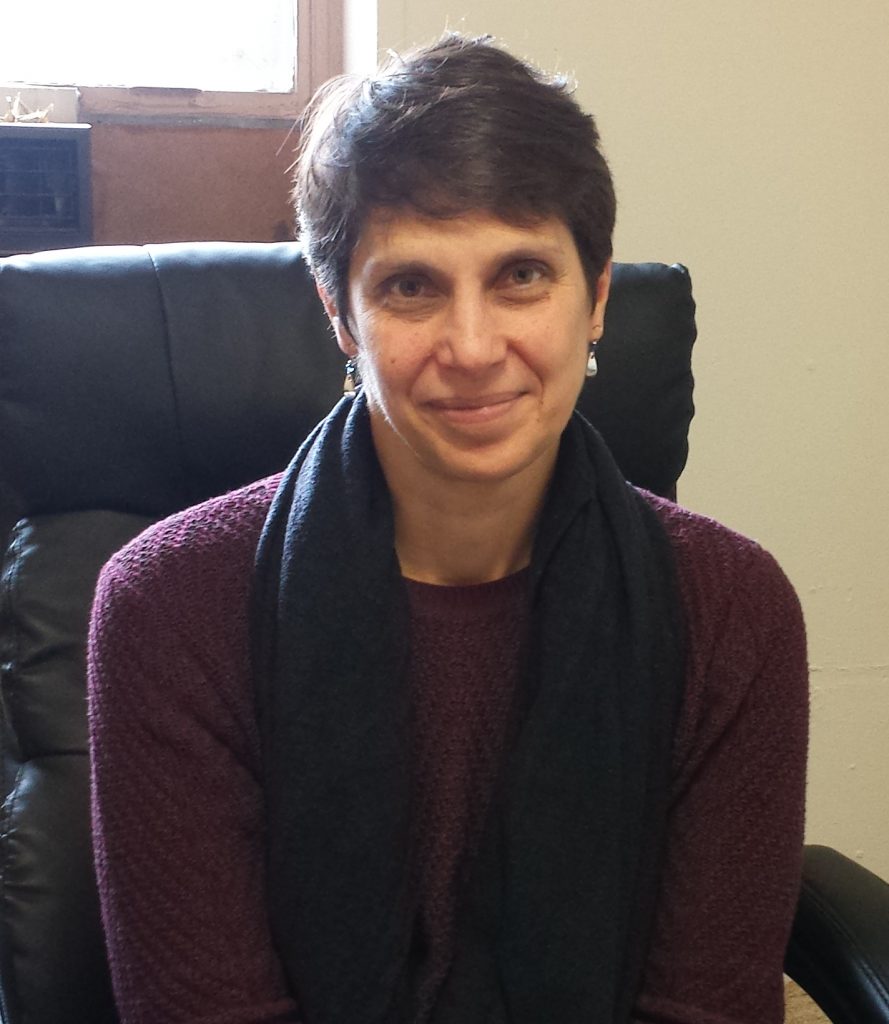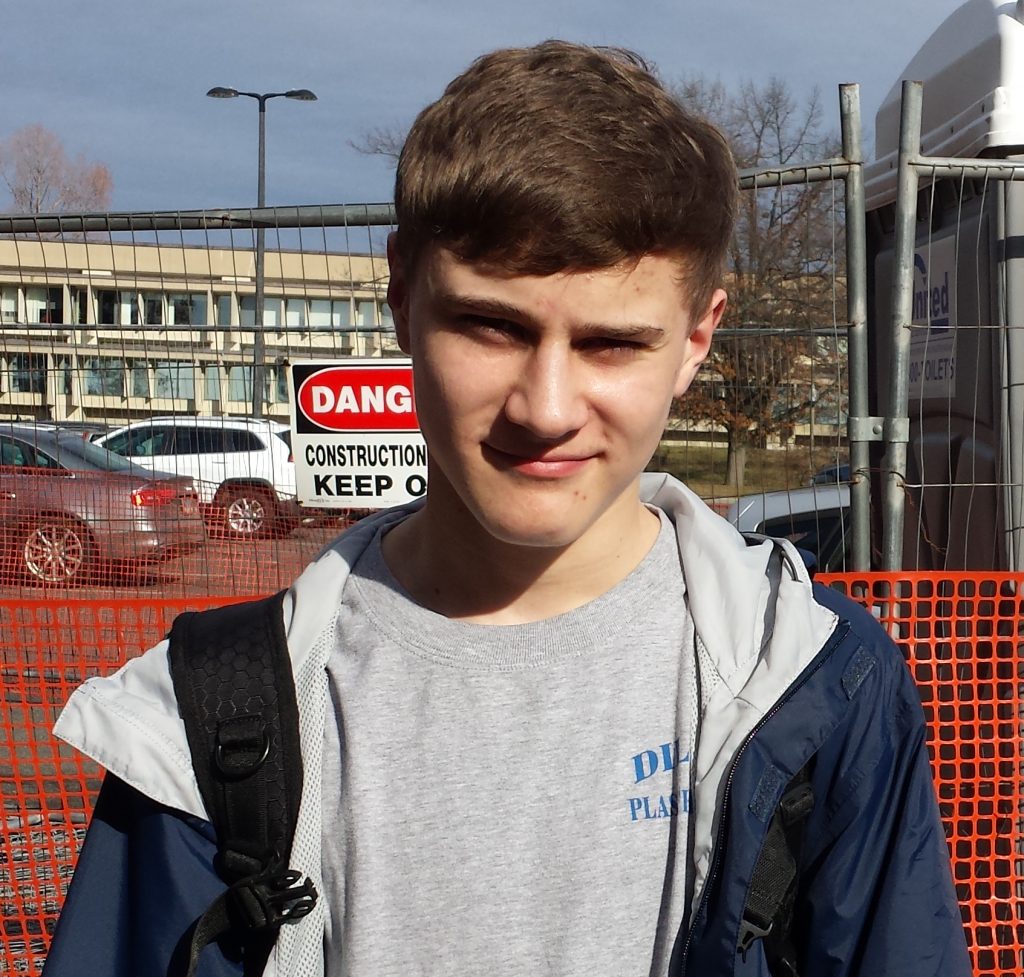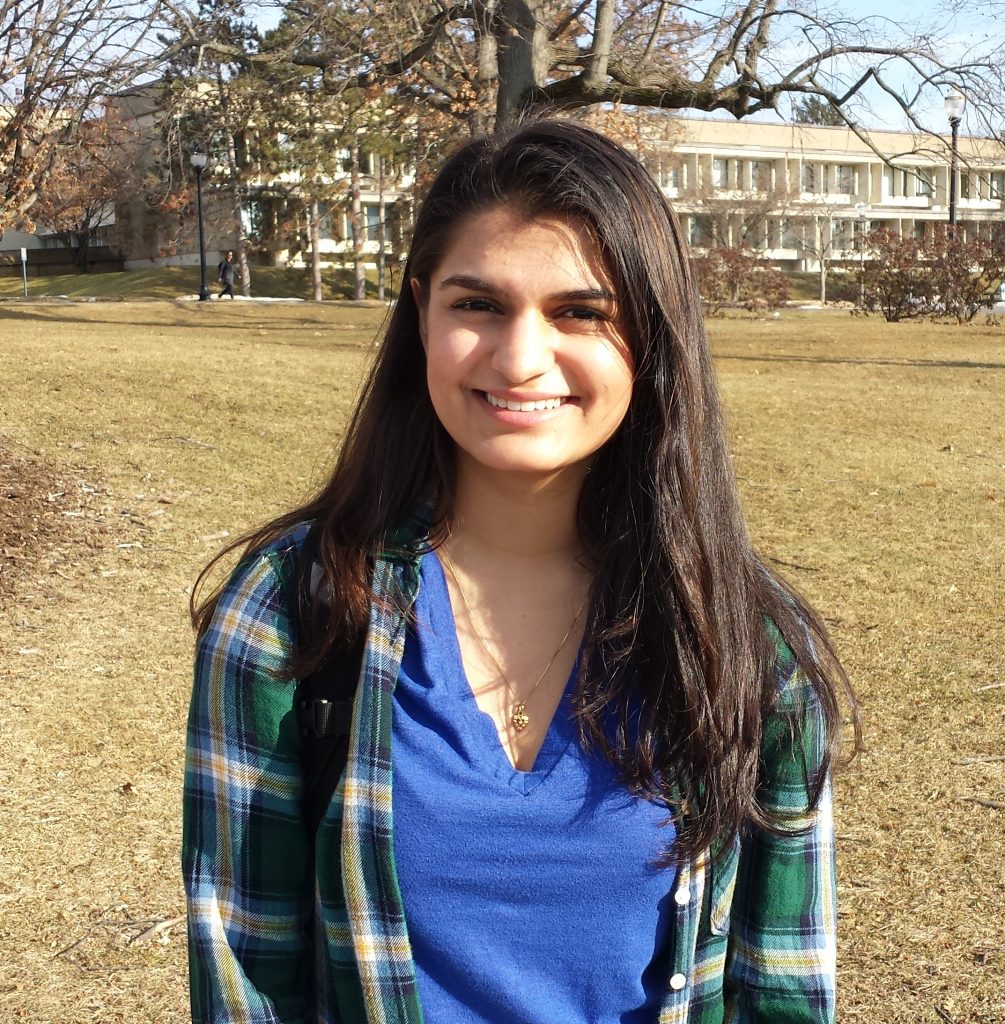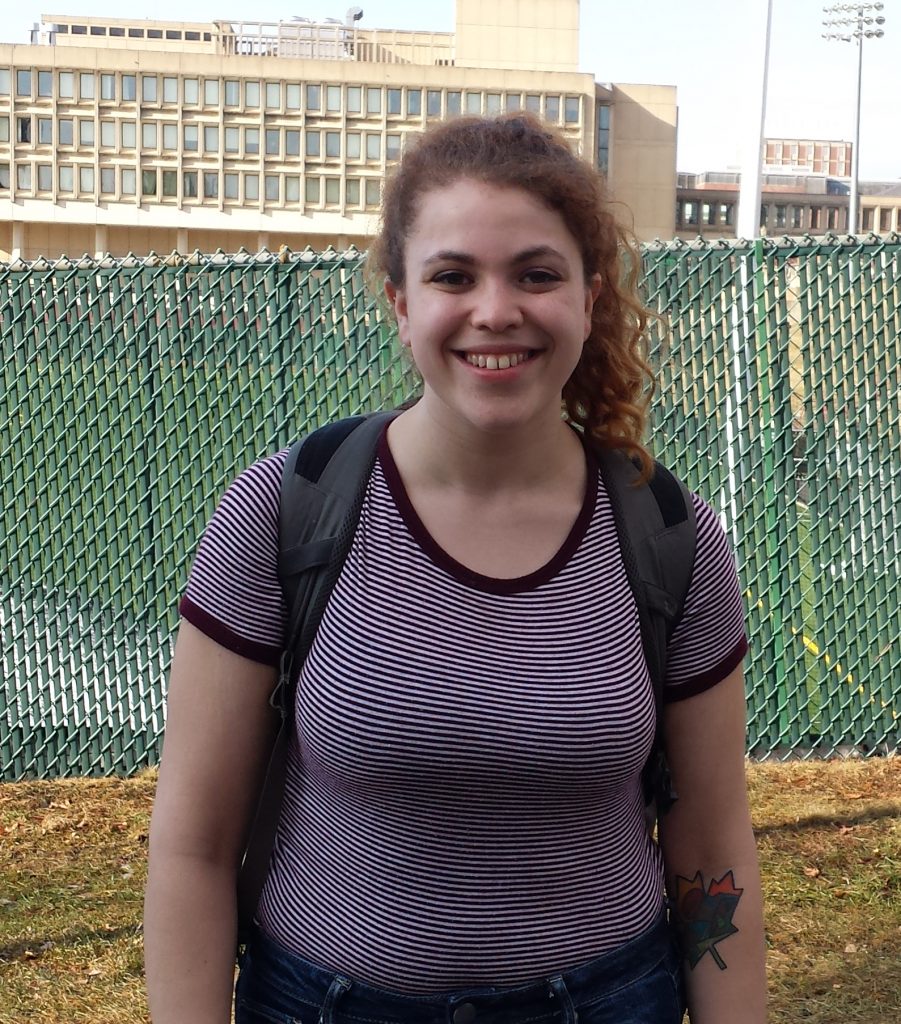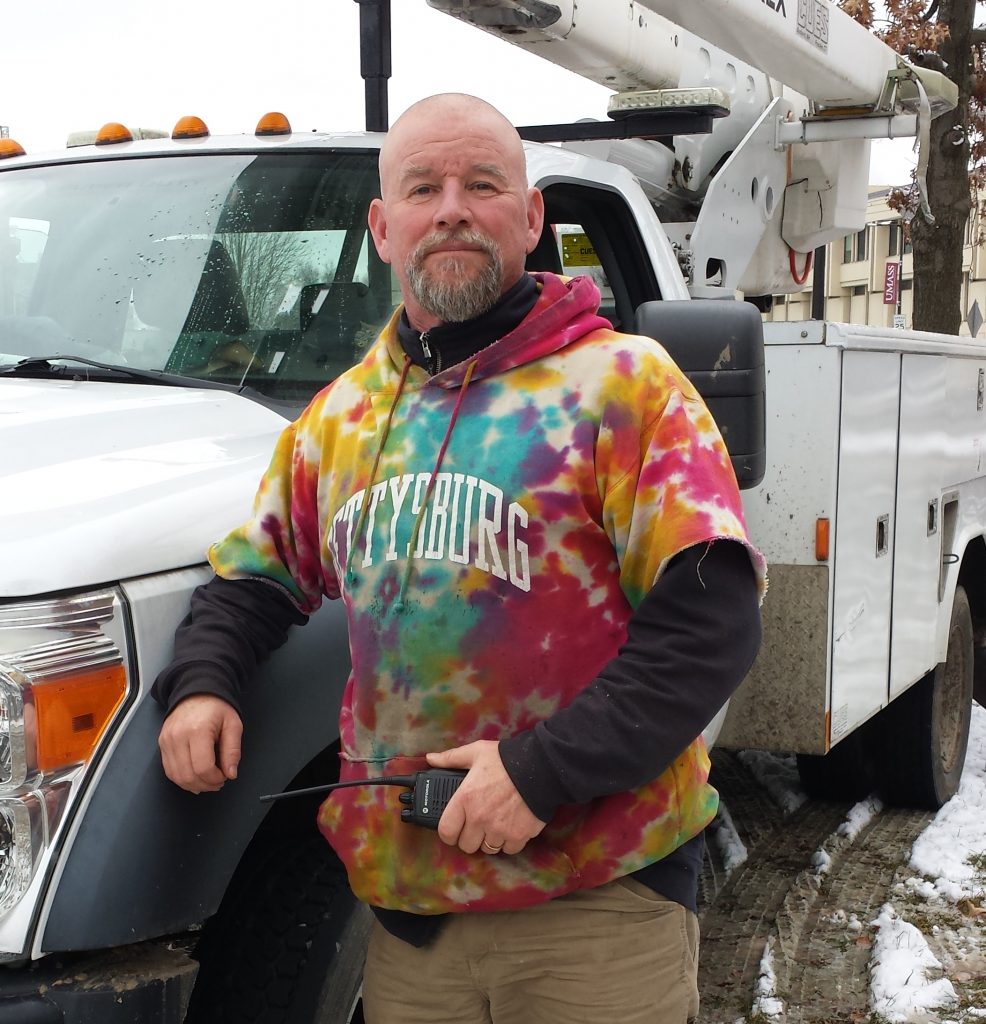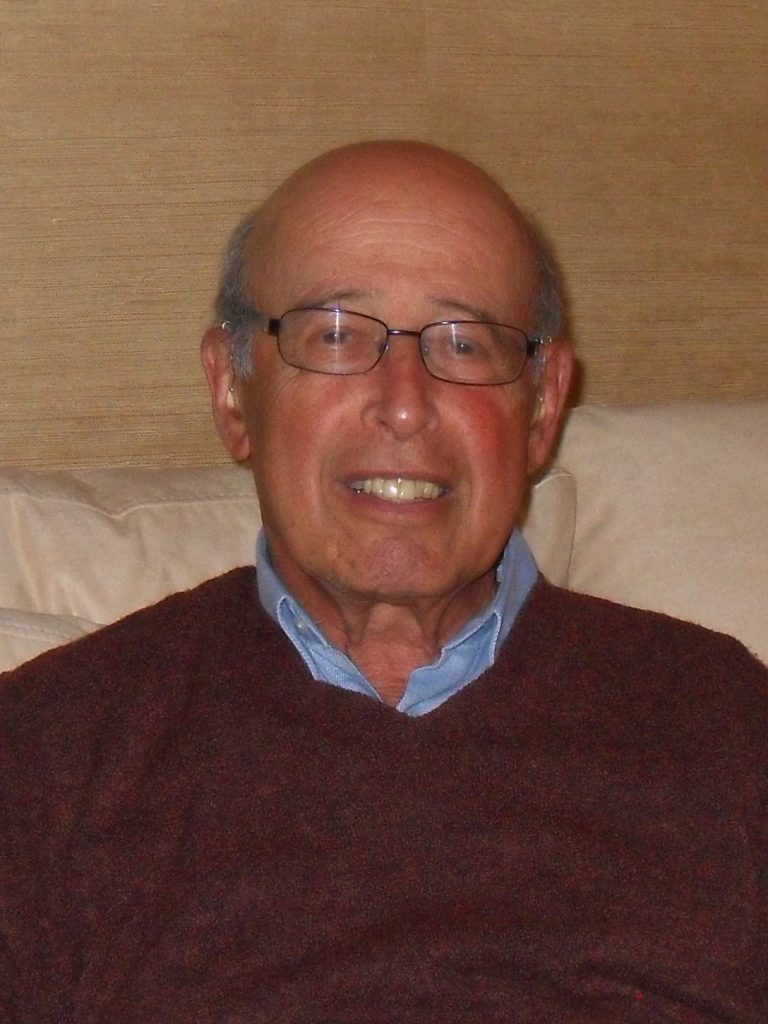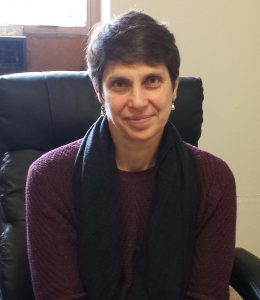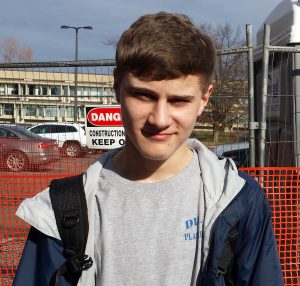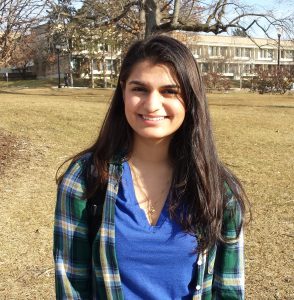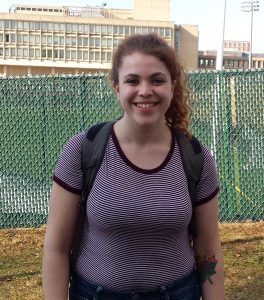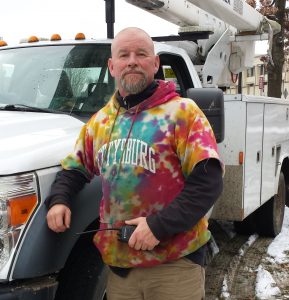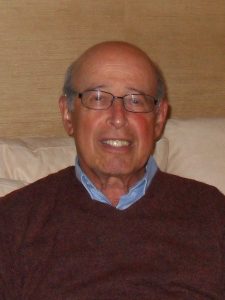Born the same year of the Columbine High School Shooting in Colorado, 18-year-old Madison Pease of Southampton grew up hearing about school shootings. But it wasn’t until 17 people were killed in the recent shooting in Parkland, Florida, that she began thinking something like that could actually happen to her.
 “In interviews with the kids, they said they didn’t think it was going to be them, that they felt like they were in the safest place ever, and that’s the way I feel,” Pease said. “We’re in such a rural area, but it could be anywhere. It is just scary. I go into school and it could be anybody that has something in their bag.”
“In interviews with the kids, they said they didn’t think it was going to be them, that they felt like they were in the safest place ever, and that’s the way I feel,” Pease said. “We’re in such a rural area, but it could be anywhere. It is just scary. I go into school and it could be anybody that has something in their bag.”
Pease, whose father is a gun owner, is among the many teens and young people inspired by the Florida shooting to take a stand against gun laws as they are today.
The Washington Post reports that since Columbine there have been more than 80 mass shootings, defined as shootings during which at least four people were killed.
Many are familiar to us:
- 26 killed at the First Baptist Church in Sutherland Springs, Texas, in November 2017
- 58 killed and hundreds injured in the Las Vegas shooting in October 2017
- 49 killed at the Orlando Pulse nightclub shooting in June 2016
Another familiar detail is that gun control measures never pass at a federal level following mass shooting events in recent decades, and in some cases states actually loosen gun laws. The last time Congress passed major gun control legislation was in 1994 when then-President Bill Clinton signed a law banning 19 types of semi-automatic firearms. The law lapsed after 10 years due to inaction from Congress.
But a new crop of activists, including the student survivors of the Parkland shooting, are demanding new gun control laws. And teens and young people everywhere have been inspired by the movement.
Pease was shocked to learn that the gun used in the Parkland shooting, an AR-15 semi-automatic rifle, was legal for an ordinary citizen to possess and that the shooter had bought it legally at the age of 18.
“I thought it was illegal; I thought no way can that be legal,” she said.
She said conversations between her and her friends have been almost exclusively about the shooting since it happened, and that she plans to take action to change gun laws, including potentially in a nationwide student walkout, which will take place on March 14.
“Everyone has to agree this is a serious problem,” Pease said. “We all need to work together to fix it. It has to be everybody.”
Teen empowerment
Eve Weinbaum of Amherst has three teenaged children, 19, 17, and 14, and said she recently couldn’t listen to radio reports of interviews with student survivors of Parkland. She felt ill, and was frustrated by years of inaction on the part of Congress, she said.
But that’s not the way her kids feel. One of them, 17-year-old Aviva Weinbaum is organizing a school walkout on the issue of gun control.
“I think maybe they feel more powerful than I do, which is interesting,” she said. “They might feel like if they do something things might change, which is great. I’m glad they feel that way. I’m more hopeless than they are, or jaded or cynical.”
Weinbaum said it is time for a student-led movement and that guns are the perfect issue.
“I hope it spreads to teens in more places,” she said. “I think it is. I think they are seeing the adults really have failed them. The adults do not have answers and I think they are right to be the ones in the streets and in the statehouses demanding that something change.”
For that change to come, Weinbaum believes the students will have to make the movement grow, and connect with others doing activism work, and she sees that happening. Part of that includes revealing idiotic ideas pedaled by the National Rifle Association like arming teachers for what they are.
“That’s like if some kid gets a stick and bashes another kid telling us all the kids need bigger sticks,” she said. “This doesn’t fit with anything we know makes sense or is right.”
Outside Weinbaum’s University of Massachusetts office, action on gun laws was on the minds of several students.
Kevin Butler, 19, of Tyngsborough is a first-year student at UMass and said he thought there should be a stricter background check system and restrictions on the AR-15.
“Originally I was pro-gun but now that it just keeps on happening, you’ve just got to draw the line somewhere,” he said.
Butler grew up hearing about Columbine, but said the first school shooting he was aware of was the Sandy Hook shooting in 2012, during which 26 people were killed, 20 of whom were between 6 and 7 years old. Butler was 13 then.
“It was while we were in school and our teacher just sat us down and talked about it,” he said. “Now everyone in the back of their minds is afraid of that happening.”
Every time another shooting happens, his opinions get affected, he said.
“Everyone always said [gun availability] was a guard against tyranny and that’s why I liked it, but at this point it’s getting ridiculous,” he said.
Jenny Patel, 21, of Sharon, a junior at UMass, said it is insane nothing has been done. She also recalled the Sandy Hook shooting.
Patel said she would like to see more regulations on checking on people with mental health issues, on law enforcement following up on warnings of people who might perform a shooting (which did not happen with the Parkland shooter), and a ban on the AR-15.
“I don’t think we can stop [school shootings] immediately, but it definitely starts with gun regulation,” she said.
She said she hopes that the current Congress will act on gun control, inspired by the teen activist survivors of Parkland and their allies.
“I really hope that not just this shooting but other shootings in the past finally bring Congress to light,” she said. “I think there needs to be change in regulation that happens now and not in the future. We don’t want more shootings to occur; we want change now.”
Rebecca Holdowsky, 21, of Grantham, N.H., said she is inspired by the Parkland shooting student survivors marching to Washington and demanding gun control laws.
“Even though they are so young, they were there and witnessed so much,” she said. “That makes it big that they are the ones coming out and trying to do that stuff…. It makes me want to get more involved.”
Weinbaum’s daughter, Aviva Weinbaum, said she was inspired to help organize a student walkout at Amherst Regional High School because school shootings have become horrifically more common.
“People are starting to say enough is enough; we need to make a real change,” she said.
During the walkout, which will take place alongside thousands of others on March 14, participants will observe a 17-minute moment for the 17 lives lost in the Parkland shooting, then will march to the Amherst Common where there will be speeches.
“I hope that legislators take notice and I hope that even the most ardent gun supporters will realize that our safety is more important than their guns,” she said.
Arming teachers ‘a bad idea’
Following the shooting, President Donald Trump and NRA Vice President Wayne LaPierre turned the discussion to arming teachers. That’s just a bad idea, according to Springfield public school teacher Janine Lapan-Yawson, who works as an instructional leadership specialist at South End Middle School.
“Teachers have to keep track of pencils, attendance, which kid is in what mood, get out assignments … and you want me to keep track of a pistol?” Lapan-Yawson said. “I think because people aren’t educators, they don’t know what goes into making a classroom work.”
Lapan-Yawson was disturbed by the Parkland shooting, but also lamented that shootings are so common.
“It seems normal now and it’s scary,” she said. “We haven’t had anything happen here but we’re constantly practicing drills and lockdowns.”
The drills are designed to help students practice staying quiet in active shooter situations and staying close to their classmates. Lapan-Yawson, however, has her doubts about the efficacy of these drills.
“I don’t know how safe you can be, depending on the type of building you’re in. We’re in an old Catholic school building. We’re told to find the safest corner, but our building is not set up for an effective lock down. It makes me nervous; I have all these lives in my hands to keep safe.”
Lapan-Yawson is also a mother of a three-year-old boy and is pregnant with twins. She said she is sad that these precautions will be normal for her children.
“Now my kids will only know these drills; they won’t know what it was like before these school shootings began,” she said. “As a teacher and a parent, you’re thinking of the safety of your class but of your own children, too.”
As for the teens in Florida who are rallying for better gun control, she says, “They’re doing something amazing. They’re doing an amazing job. They want to make school safe for others.”
There are two nation-wide actions planned for the coming weeks, including a national school walkout on March 14 and the March for Our Lives on March 24.
Many colleges, including UMass and several of the local colleges, have stated their support for students to take part in the action.
Lapan-Yawson supports them, too.
“It’s their personal right to protest,” she said. “If I had a child who wanted to protest, I would encourage him to do what he needed to do.”
Swaying gun owners
The frequent mass shootings have also begun to wear on Jimmy Recore, president of the Conway Sportsman’s Club.
Recore, 55, who refers to himself as “a president not a dictator,” leads the club of more than 200 members, but breaks with many of his friends by calling for more gun regulations.
“My first thought immediately [after hearing about the Parkland shooting] was, ‘Another one. This has got to stop. We can’t keep doing this,’” he said.
Recore grew up hunting and has been a member of the Conway Sportsman’s Club since he was 15, but he is also a girl’s track coach at Frontier Regional High School in South Deerfield and his wife and daughter are teachers.
“I understand both sides,” he said. “Gun owners are afraid if the bans start they will never end until we don’t have any guns.”
But following the Las Vegas shooting in 2017, Recore decided he could not think of a reason why any American gun owner would need an assault-style weapon like the AR-15.
For Recore, who hunts with homemade wooden arrows and single-shot, 19th-century-style guns, a weapon of that type is unnecessary.
“It’s a military weapon,” he said. “It was designed to kill people.”
As for the student activists, Recore said it is about time students became active.
“I thought the election of Trump would energize the youth movement like nothing before and I am disappointed that it hasn’t,” he said. “And I’m saying that as someone who voted for him.”
Recore said we all have yet to see if the current movement on guns will yield any legislative results. He said there should be give and take on both sides, and that little will be accomplished with some politicians calling for banning all guns while the NRA calls for everything to be legal.
“As with most debates, both sides in some way are wrong,” he said. “There are certainly individuals who shouldn’t be able to own firearms and there are firearms that no one should use, to my mind. But I know many responsible gun owners who want them for protection.”
The Advocate also tried to reach leaders of other gun clubs, including Franklin County Sportsmen’s Club, the Western Mass Bird Dog Club, and the Holyoke Revolver Club, but representatives from those groups either declined to comment or did not return calls.
A focus on support and compassion
Ervin Staub, a youth and violence expert and psychology professor at UMass Amherst, the reaction of students to Parkland has been “an unusual moment.”
Staub said some victims of violent trauma withdraw and become hostile. If given support at the time of the trauma, however, they are more likely to reach out and try to help others. This is what Staub calls “altruism born of suffering.”
Living in a world where school shootings have become commonplace has potentially harmful consequences. “More frequent shootings add to a feeling that the world is a dangerous place,” said Staub. He warned that if people perceive a need to defend themselves in this seemingly dangerous environment, “some students may become more aggressive.”
There are long term ramifications to living in this environment. “There are at least two generations now going out into the world feeling insecure,” said Staub.
The focus on mental illness as a component in mass shootings is troublesome to Staub, who said this will further stigmatize people with mental illness. He added, “only a small percentage of people with mental health issues shoot.” The reverse is also true, said Staub. “Many people who do this don’t have a mental health issue, per se. Most violent people are wounded individuals who have been mistreated in some way.”
The long-term answer, according to Staub, is to foster a society in which people “support and embrace one another.” Staub said society should teach children to pick up on clues from others and act on them, what he calls being “active bystanders.”
Staub said the activism of the survivors can “spread like a contagion,” and hopes that students will talk to other teens and parents. “Without continued support and reinforcement, the movement will fall apart,” he said.
Mandy Levy, 17, a junior at Quaboag Regional High School in Warren, said she thinks about school shootings a lot and has wondered if some of her fellow classmates could be shooters.
“People joke about it, there are memes, but I think it’s sad that you have to think about it, that it runs through your mind,” she said.
Levy said she thinks teachers should be trained to take mental health problems more seriously. “Teachers don’t really pay attention when there’s bullying.” She thinks the “pent up anger of students who aren’t being heard” is the driving reason behind students and former students carrying out school shootings.
Levy said her school gave the students ALICE training, which discussed techniques such as distraction, hiding, and fighting back as a last resort.
Levy said armed teachers wouldn’t make her feel safer. “I would be very uncomfortable. How easy would it be for a kid to get that gun if they wanted to? What if the teacher is unstable? What if they shot the wrong kid? Instead of paying for teachers to have guns, they should put the money into better training for guidance counselors and teachers on mental health issues.”
“Lawmakers need to know that kids need more support,” said Levy. “Family problems and kids being picked on can lead to really bad situations.” She says school officials should be taught “how to listen to kids. I think that would help a lot.”
Thoughts and prayers … and ACTION
At a vigil at the First Congregational Church of Southampton following the Parkland shooting, pastor Jennifer Valentine said she believed there was hope.
Her congregation includes people on all sides of the gun debate, and she said her members try create a space where everyone’s opinions are respected.
At the vigil, thoughts and prayers were offered to the survivors. In a conversation after the vigil, Valentine responded to the comments made by many activists that “thoughts and prayers” are not enough, and that action is required.
“Thoughts and prayers are what connects us with each other, and if they are heartfelt and real and true, they will spur action,” she said. “Thoughts and prayers without action are incomplete … They are the springboard; they are not the end.”
As for the student activists, Valentine said many have reached a tipping point of what they are willing to accept, and that these students are at a maturity level where they are able to give voice to those feelings.
“I’m really proud of those students and the young people who are stepping forward,” she said. “They are the people who are going to be able to, I believe, create the most change.”
Pease, the 18-year-old student from Southampton, said she is inspired by the students.
“I give them so much respect to be able to go against the politicians … to stand in front of people and even hold it together,” she said. “I’ve cried for days about this, and I don’t know these kids. I can’t imagine being in this situation.”
She has talked to her father, who is a gun owner, and she said he is on the same page that she is.
For her, it is a simple issue.
“I want to go to school and get an education and not be killed,” she said.

